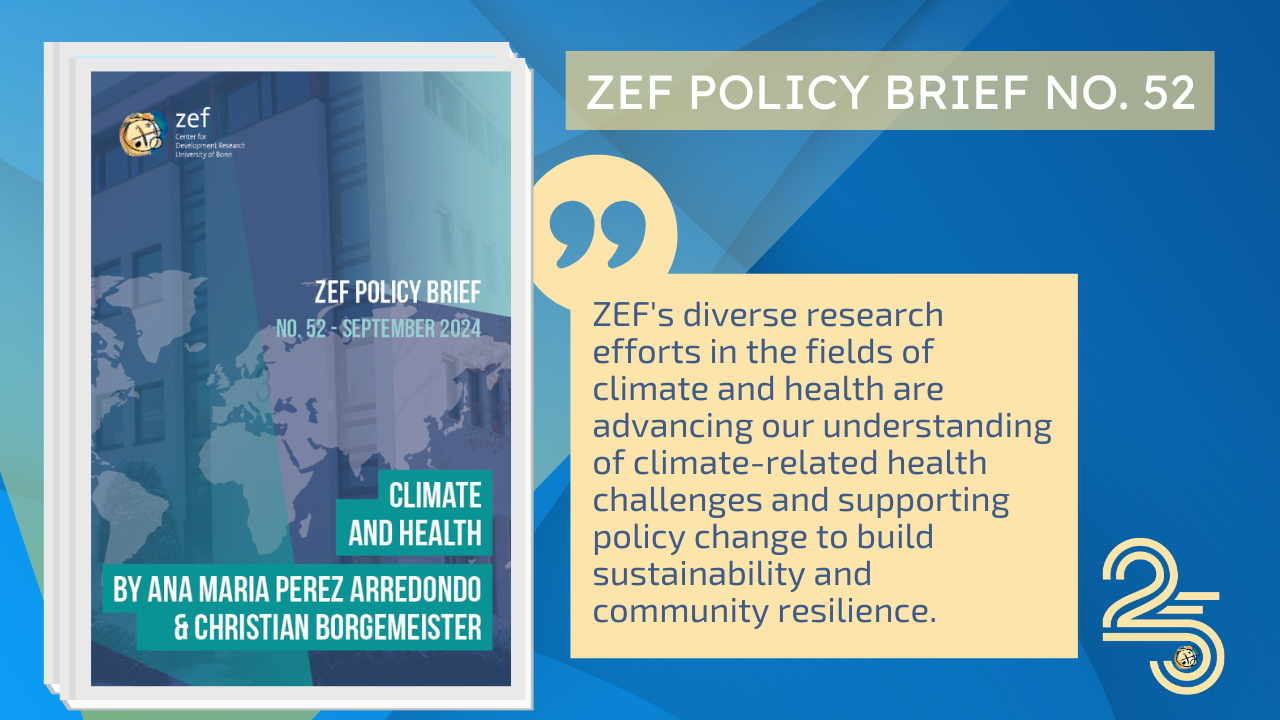ZEF has contributed significantly to understanding the health impacts of climate change.
Integrated health approaches are needed
This research area examines the complex link between climate change and health, highlighting the need for integrated health approaches. Global changes, like climate variability, are impacting human, animal, and environmental health. ZEF addresses these issues through interdisciplinary research that blends biological, social, economic, and ecological factors.
Climate change exacerbates health problems
ZEF’s work spans critical areas such as zoonotic and vector-borne diseases, antimicrobial resistance, health resilience, urban green spaces, and social health determinants. Their research shows how climate change exacerbates health problems like heat stress, respiratory issues, and vector-borne diseases by altering environmental conditions. Key topics also include the effects of climate change on water quality and agricultural productivity, with a focus on developing adaptation strategies to protect vulnerable populations and enhance food security and health resilience.
Understanding and addressing the health impacts of climate change
ZEF has contributed significantly to understanding the health impacts of climate change, such as the severe effects of extreme weather on child nutrition, the presence of drug-resistant bacteria in urban wastewater, and the mental health benefits of urban green spaces. Current projects focus on arboviral disease transmission, the ecology of waterborne diseases under climate change, and the role of diet in antimicrobial resistance. ZEF’s diverse research efforts in the fields of climate and health are advancing our understanding of climate-related health challenges and supporting policy change to build sustainability and community resilience.
Why an interdisciplinary approach is crucial for future research
In summary, ZEF’s research provides comprehensive solutions to health challenges posed by environmental change, emphasizing the need for sustainable, inclusive, and adaptable health systems. However, challenges remain, including the complexity of interdisciplinary collaboration, difficulties in data collection, and the translation of research into sustainable policies. ZEF recommends fostering interdisciplinary research, incorporating cultural diversity in health strategies, examining gender dynamics, assessing healthcare system resilience, and reducing the environmental impact of healthcare practices.
Read the full text in ZEF Policy Brief no. 52 by Ana Maria Perez Arredondo, Senior Researcher and Project Coordinator of the One Health Graduate School at ZEF and Christian Borgemeister, ZEF-Director and Professor.



Leave a Reply